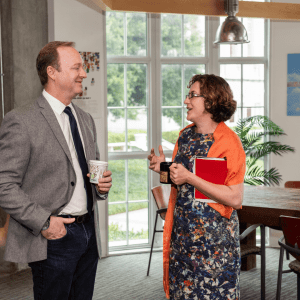It is realistic to say there is not a soul on this planet that has not been affected in some way by this global pandemic. We have had to roll with the punches this year and each of us have found a way to re-align, re-adjust, let some things go, and choose to put other things on hold. Yet, we keep Pushing Through. Through it all, there are countless untold stories of perseverance, resilience, and people helping strangers. Our distinguished list of Affiliates are among those who keep Pushing Through with a desire to help address some of the consequences of this global pandemic.
The reality of the changing conditions due to COVID-19 has become a focus in much of our work in the Global Development Lab including health, entrepreneurship, and a resource map in Dallas to help those hit the hardest by COVID-19.
Our point of care device research led by Dr. Ali Beskok, former Departmental Chair for the Mechanical Engineering department and Professor, in partnership with Dr. Chiao Jung Chih, and their labs have shifted focus to “Lab on a Chip Device for COVID-19.” Dr. Beskok spoke to this shift when he said, “The primary motivation of our research is the development of inexpensive and accurate point of care devices for health monitoring in remote and underdeveloped regions. For example, such a malaria test can save thousands of lives around the world each year! This is our primary motivation.” Dr. Jungchih. For readers unfamiliar with traditional lab testing, the Mayo Clinic released a report about The Importance of Antibody Testing in Addressing COVID-19. Lab on chip and point of car devices expedite this same type of testing by reducing the time processed in a traditional lab. It is the goal of this research to put that rapid response resource into the hands of the first responders and health professionals on the front line. Dr. Jung Chih echoed Dr. Beskok’s motivation when he said, “We have an unprecedented opportunity to demonstrate the power of engineering innovation to help control this global pandemic with SMU’s unique multidisciplinary research talents and synergic team work.“ They continue to push through in their labs despite the myriad of delays due to the pandemic.
We know that a healthy recovery for our economy needs entrepreneurship. Our partnership with the Veteran Women’s Enterprise Center in Dallas, Texas working on the Moments that Matter research is a driving force behind business development for women veteran business owners. Our Affiliate VR Small speaks to her motivation, “Why I am so determined to drive the collection and application of real-time data about women veteran entrepreneurs is because I know the impact; I know we are not just building businesses; we’re transforming lives. When we help a women veteran owned business succeed, we strengthen our family structures, create community resources, and literally fuel our nation’s economy. My personal slogan is Changing the way we see the world and do business, and as a leader that’s what I strive to achieve every day.” The development of this national assessment tool will change the way we see and support women veteran entrepreneurs with an understanding of both their challenges and their successes. In this era of COVID-19, real time data driven decisions are critical to the continued recovery, stabilization and growth of our small business communities.
Finally, for short-term solutions, our Map INDallas in early beta development shifted to be a COVID-19 Relief Map. Dr. Eva Csaky, Executive Director of the Hunt Institute, along with the Advisory Committee dreamed up the Map INDallas project with a desire to improve access to information about free services available in Dallas through an innovative mapping approach. The original design was planned to provide information and analytics to service providers which will be in future work as we develop and create a collection of useful maps to address various issues. Dr. James Olivier, Hunt Institute Fellow and Adjunct Professor in Lyle School of Engineering, speaks to the importance of the shift in the map’s focus, “We wanted to provide targeted location oriented information to those affected by the SARS-COV-2 pandemic, allowing them to quickly find aid and services nearby. The Map INDallas project was the ideal way of quickly providing this needed resource.”
In the coming weeks, we will be highlighting various projects their affiliates, student workers, and industry or in-country partners telling their stories about resilience, innovation, and finding ways to keep Pushing Through.
To read more about the Hunt Institute’s work to develop future-focused solutions to some of the world’s biggest problems, please click here. For the latest news on the Hunt Institute, follow our social media accounts on LinkedIn, Facebook, Twitter, and Instagram. We invite you to listen to our Podcast called Sages & Seekers. If you are considering engaging with the institute, you can donate, or sign-up for our newsletter by emailing huntinstitute@smu.edu


